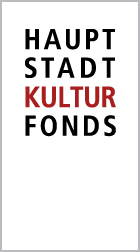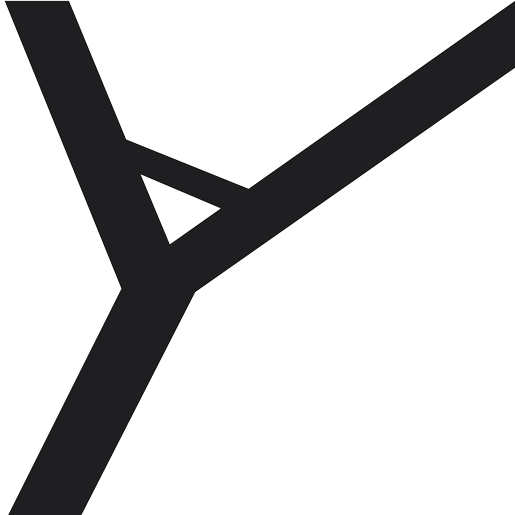The first Activist Neuroaesthetics symposium will take place online March 5-6, 2021 from 17:00 h. It includes a number of important thinkers to Activist Neuroaesthetics including Franco “Bifo” Berardi, Cecile Malaspina, Bonaventure Soh Bejeng Ndikung, Warren Neidich, Victoria Pitts-Taylor and Charles T. Wolfe, with a panel discussion moderated by Elena Agudio. This event will also form the basis for a book on Activist Neuroaesthetics to be published by Archive Books later this year.
Activist Neuroaesthetics includes three exhibitions, a conference, a symposion, a filmscreening and additional events between March 5–August 7, 2021
https://vimeo.com/showcase/8312503
Activist Neuroaesthetics, Symposion
Activist Neuroaesthetics, Symposion
Activist Neuroaesthetics,
Symposion March 2021
Activist Neuroaesthetics, Symposion
Activist Neuroaesthetics,
Symposion March 2021
Activist Neuroaesthetics, Symposion
Activist Neuroaesthetics, Symposion
About Activist Neuroaesthetics
Under cognitive capitalism, the brain and mind are the new factories of the twenty-first century. We are no longer proletarians working on assembly lines, but cognitarians generating behavioural data that is bought and sold on futures markets (Zuboff, 2019). This data is not passive, but constitutes a new distribution that polices the sensible, perceptible, and cognitive through apparatuses of control such as Google Bubbles and Meme Magic. Just as the pioneers of cognitive capitalism realized the coming digital economy would create a crisis for labor and the production of subjectivity, so too another crisis is brewing exemplified by neural-based technologies (and their corporate counterparts like brain-computer interfaces and Neuralink) which focus upon the brain’s plasticity as its locus for capitalist speculation.
Activist Neuroaesthetics is a generalized theoretical and aesthetic approach that refutes the dogma of what is known as Positive Neuroaesthetics. Positivist neuroaesthetics is a reductionist methodology that attempts to explain the aesthetic field and its production (artworks) by referring to neuroanatomical models aided by technology (i.e. neuroimaging). Its goals are to explain artworks, such as paintings, through its effects upon the brain’s neural processing itself rather than as something happening independently, or outside of the material brain’s jurisdiction (for example, in relation to events and processes happening in the world of art). It refutes the importance of the history of art as a causal factor in art production and conspires with capitalism to recuperate its most radical claims in order to make it palatable and normalized.
Activist Neuroaesthetics rather concerns artists using their own histories, techniques, apparatuses, materials and theoretical constructs to investigate the same fields of knowledge as cognitive neuroscience, but to produce an alternative discourse concerning perception and cognition where events going on inside and outside the brain coevolve together and our cognitive abilities are expanded, rather than normalized. Here, the brain not only refers to the intracranial brain consisting of neurologic matter, but also the situated body and the extracranial brain composed of gestalts, affordances, linguistic atmospheres and socially-engaged interactions. Activist Neuroaesthetics refuses the cynicism of Big Data, neural consumerism and DARPA generated technologies (such as optogenetics), and instead promotes an ethics of neural plastic emancipation and neural diversity to produce artistic facts, rather than scientific ones, that are organized into a generalized paradigm of resistance.
The first ACTIVIST NEUROAESTHETICS Symposium will be followed by a three-part exhibition (Brain Without Organs, Sleep and Altered States of Consciousness, and Telepathy and New Labor) at Verein zur Förderung von Kunst und Kultur am Rosa-Luxemburg-Platz e.V. on view May through August.
In July, an ACTIVIST NEUROAESTHETICS Conference will take place in collaboration with Saas-Fee Summer Institute of Art in continued celebration of the 25th anniversary of artbrain.org.
SPEAKERS BIOS
Elena Agudio is a Berlin-based art historian and curator. She studied Art History at the University of Venice – Ca’ Foscari and in 2010 she received her PhD in Contemporary Art and Design. She is interested in curatorial practices as forms of troubling, with a focus on its performative and relational aspects. Since 2013 she has been artistic co-director of SAVVY Contemporary, where she curates and co-curates exhibition projects, discursive programmes and series, among which recently: Ultrasanity. On Madness, Sanitation, Antipsychiatry and Resistance; Soil is an Inscribed Body. On Sovereignty and Agropoetics; and the series Speaking Feminisms/We Who Are Not The Same dedicated to an exploration of current feminist practices and alliances. She is also artistic director of the non-profit association Association of Neuroesthetics (AoN)_Platform for Art and Neuroscience, a project in collaboration with the Medical University of Charité and The School of Mind and Brain of the Humboldt University encouraging both a dialogue and lasting cooperation between contemporary art and the cognitive sciences. She writes and teaches, and since 2017 she has been invited to offer art histories classes and run seminars at the Weissensee School of Art in Berlin. In 2017 and 2018 she was Guest professor at HfBK (Kunsthochschule für Bildende Künste) in Hamburg and Resident Fellow at Helsinki University of the Arts.
Franco “Bifo” Berardi, founder of the famous “Radio Alice” in Bologna and an important figure of the Italian Autonomia Movement, is a writer, media theorist, and media activist. He currently teaches Social History of the Media at the Accademia di Brera, Milan.
Cécile Malaspina is directeur de programme at the Collège International de Philosophie, Paris, and Visiting Research Fellow at King’s College London. She is the author of An Epistemology of Noise (Bloomsbury 2018) and principal translator of Gilbert Simondon’s On the Mode of Existence of Technical Objects (Minnesota University Press 2017). She completed her PhD in Philosophy, Epistemology and History of Science and Technology at Paris 8 Denis Diderot, under the supervision of Alain Leplège and Iain Hamilton Grant, and obtained her MA in Contemporary French Philosophy & Critical Theory from the Centre for Research in Modern European Philosophy (CRMEP), UK.
Dr. Bonaventure Soh Bejeng Ndikung (born in 1977 in Yaoundé, Cameroon), is an independent curator, author and biotechnologist. He is founder and artistic director of SAVVY Contemporary in Berlin and the artistic director of sonsbeek20–24, a quadrennial contemporary art exhibition in Arnhem, the Netherlands. Ndikung was curator-at-large for documenta 14 in Athens, Greece and Kassel, Germany in 2017; a guest curator of the Dak’Art biennale in Dakar, Senegal, in 2018; and the artistic director of the 12th Bamako Encounters photography biennial in Mali last year. He is currently a professor for the Spatial Strategies MA program at the Weissensee Academy of Art in Berlin and is also a recipient of the first OCAD University International Curators Residency fellowship in Toronto, Canada.
Having studied photography, neuroscience, medicine and architecture, Warren Neidich brings to any discussion platform a unique interdisciplinary position that he calls “trans-thinking.” He currently uses video and neon to create cross pollinating conceptual text-based works that reflect upon situations at the border zone of art, science and social justice. His performative and sculptural work Pizzagate Neon (2018), recently on display at the Venice Biennial 2019, analyzed through a large hanging neon sculpture the relations of Fake News, networked attention economy, evolving techno-cultural habitus and the co-evolving architecture of the brain. His recent conceptual project Drive-By-Art (Public Sculpture in This Moment of Social Distancing) just opened on the South Fork of Long Island and Los Angeles to some acclaim including reviews in the NY Times, Hyperallergic, The Art Newspaper, Time Out and LA Magazine. He is founder and director of the Saas-Fee Summer Institute of Art (2015-), a theory intensive postgraduate course that attracts students worldwide operating in Los Angeles, NYC and Berlin. Additionally he was a tutor in the departments of visual art, computer science and cultural studies at Goldsmith College London as well as recently serving as Professor of Art at the Weissensee Kunsthochschule, Berlin. He has been a visiting lecturer at the departments of art at Brown University, GSD Harvard University, Columbia University, Princeton University, Southern California Institute of Architecture, UCLA, La Sorbonne Paris, University of Oxford and Cambridge University, UK. He is American editor of Archive Books and author of over 20 books. His recent books include The Glossary of Cognitive Activism, Archive Books, Berlin, and Neuromacht (in German) Merve, Leipzig.
Victoria Pitts-Taylor is Professor of Feminist, Gender and Sexuality Studies, Science in Society and Sociology at Wesleyan University. Her scholarly focus is on the body in culture, medicine and science. Her recent work has appeared in the journals Science, Technology and Human Values; Health; and Sexualities. These articles address brain-based claims about the effects of poverty, the development of a quasi-diagnosis around gender disorder, and the temporal politics of gender affirmation medicine. She is also author of three books including The Brain’s Body: Neuroscience and Corporeal Politics (Duke, 2016), which won the Feminist Philosophy of Science Prize from the Philosophy of Science Association and the Robert K. Merton Prize from the American Sociological Association. The Brain’s Body addresses the questions of embodiment and difference for materialist notions of the mind/brain, and reads neuroscience through the lens of queer and feminist onto-epistemology. She is also editor of the anthology Mattering: Feminism, Science, and Materialism (NYU Press, 2016), and the two-volume Cultural Encyclopedia of the Body (Greenwood Press, 2008).
Charles T. Wolfe is a Professor in the Department of Philosophy, Université de Toulouse Jean-Jaurès. He works primarily in history and philosophy of the early modern life sciences, with a particular interest in materialism and vitalism. He is the author of Materialism: A Historico-Philosophical Introduction (2016), La philosophie de la biologie: une histoire du vitalisme (2019) and Lire le matérialisme (2020), and has edited or co-edited volumes on monsters, brains, empiricism, biology and vitalism, including currently (w. D. Jalobeanu) the Encyclopedia of Early Modern Philosophy and the Sciences and (w. J. Symons) The History and Philosophy of Materialism. He is co-editor of the book series ‘History, Philosophy and Theory of the Life Sciences’ (Springer).
About artbrain.org
Over the last 25 years, artbrain.org has developed alternative vocabularies and practices with which to rethink the fields that describe sensation, perception and cognition. Founded in 1996, artbrain.org was established by Warren Neidich and Nathalie Angles. Since 1998, Neidich has continued the project and developed the term Activist Neuroaesthetics to describe an enactive approach to neuroaesthetics that not only understands the importance of neural plasticity in the material brain, but recognizes art as a generator of diversity which has the capacity to induce complexity and variability – an important factor for understanding and consciously enacting social and political transformation.

